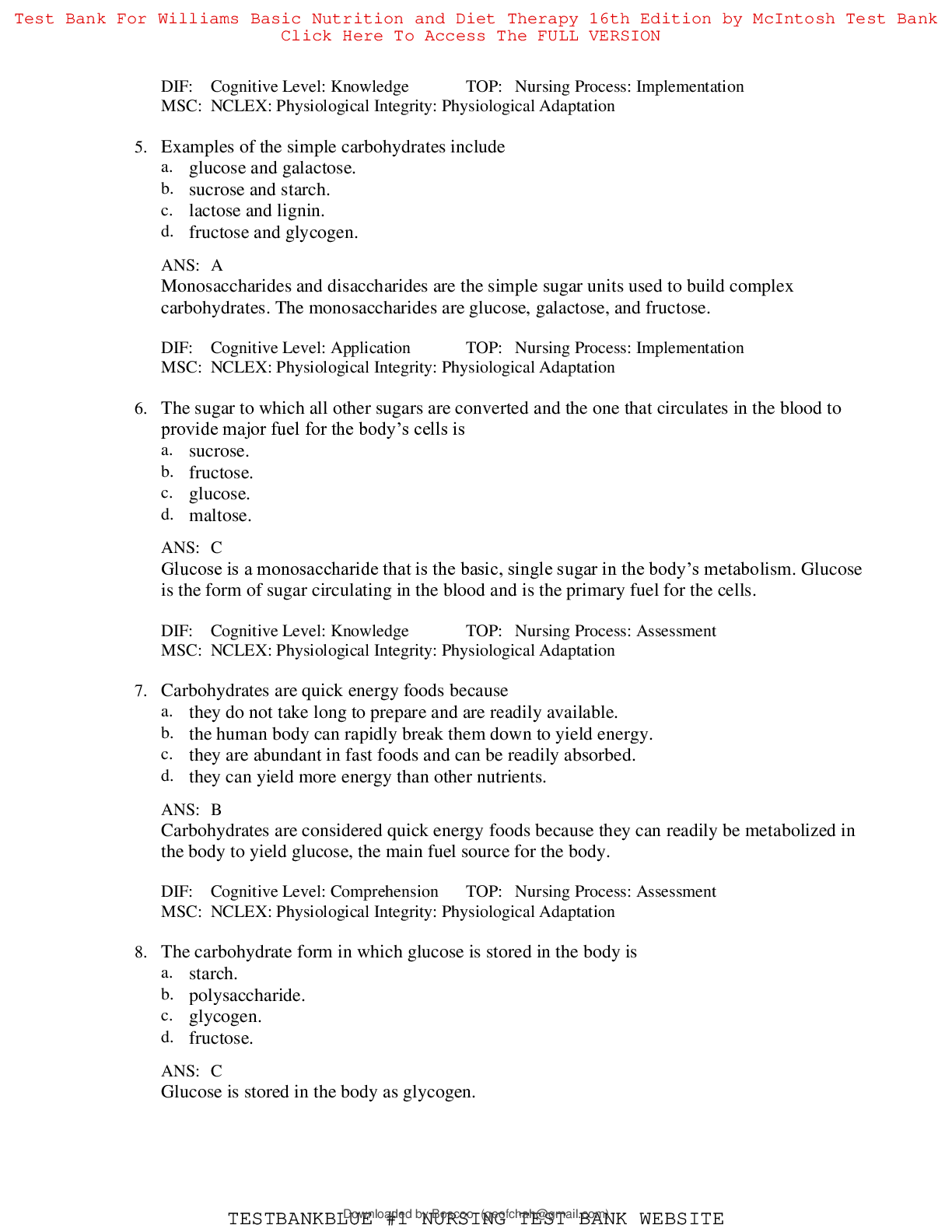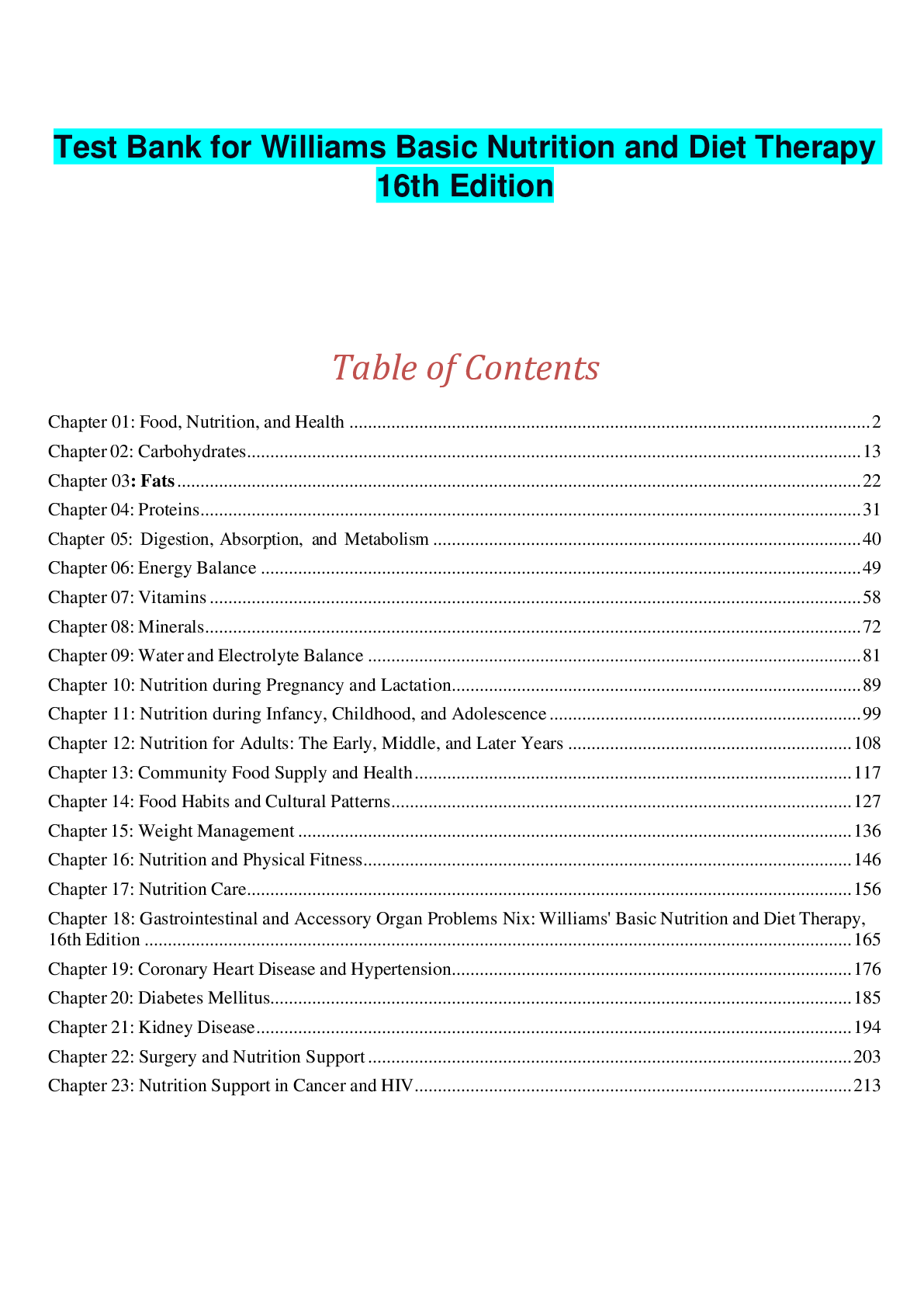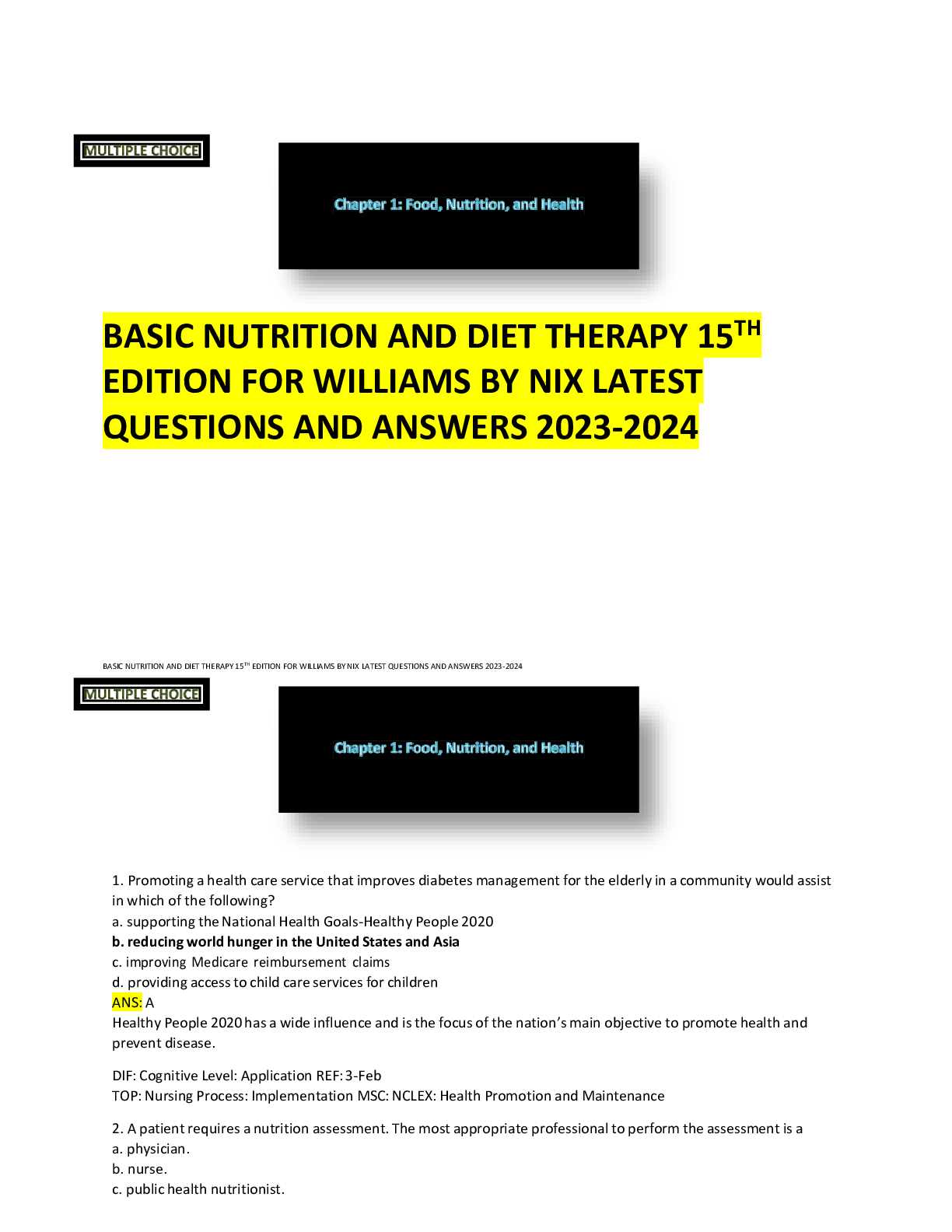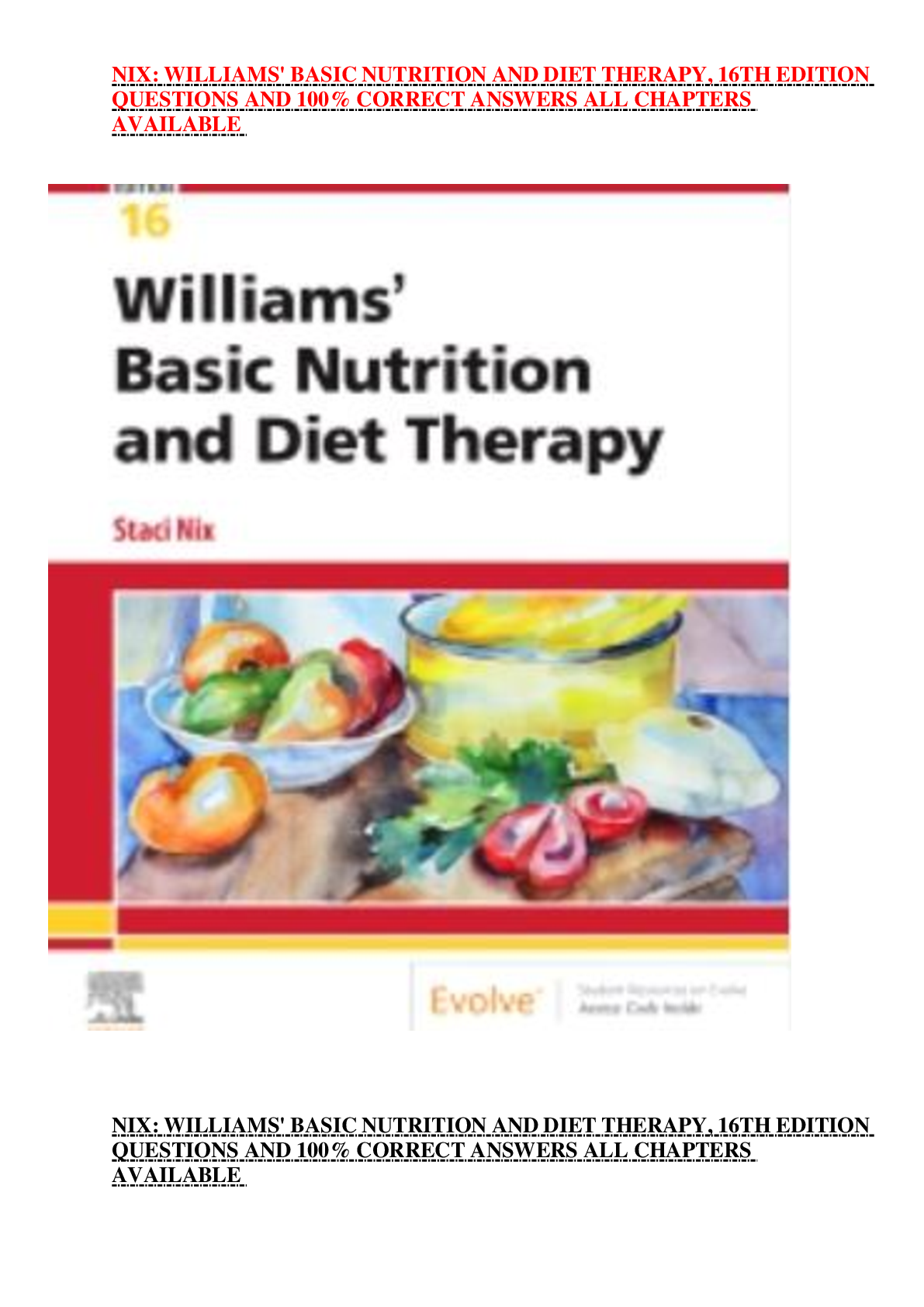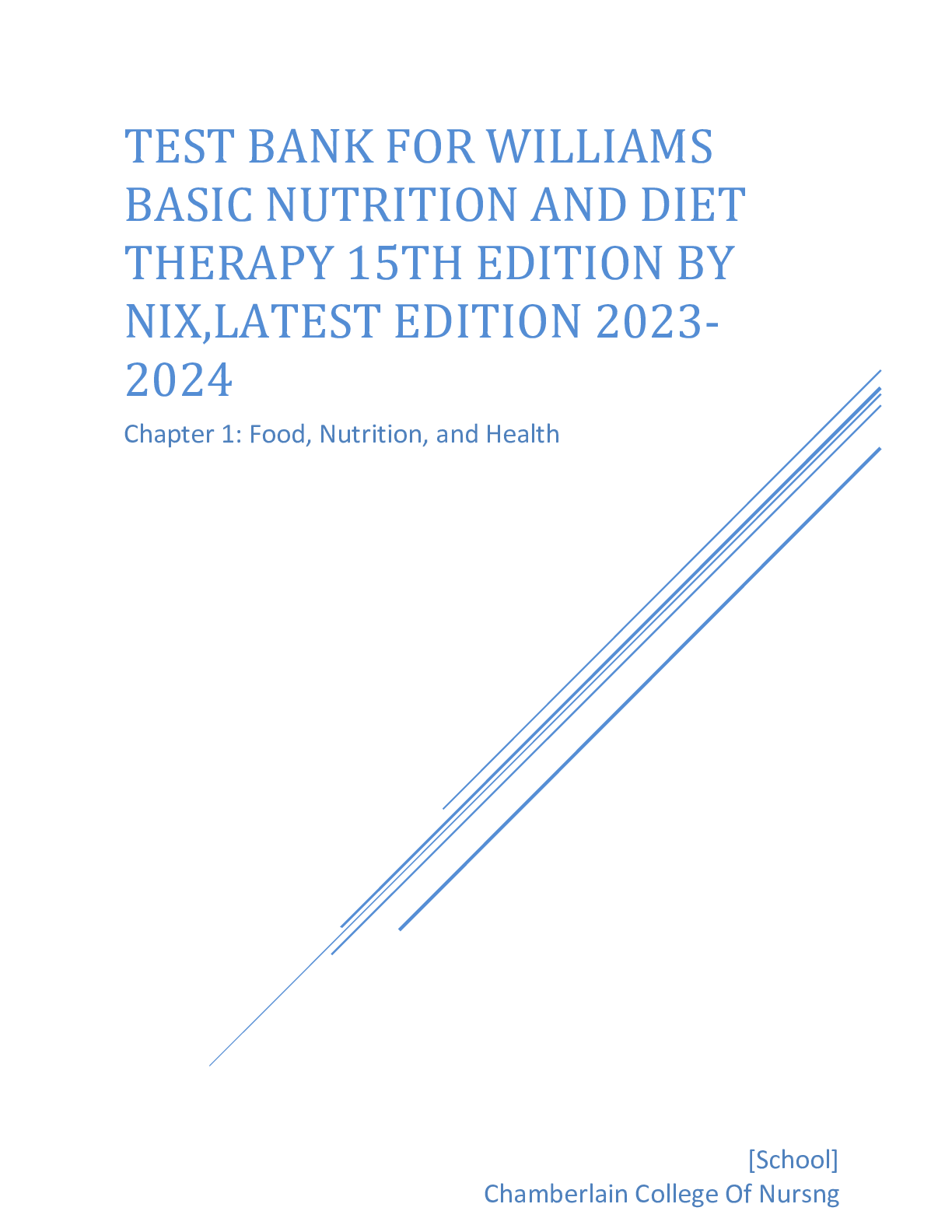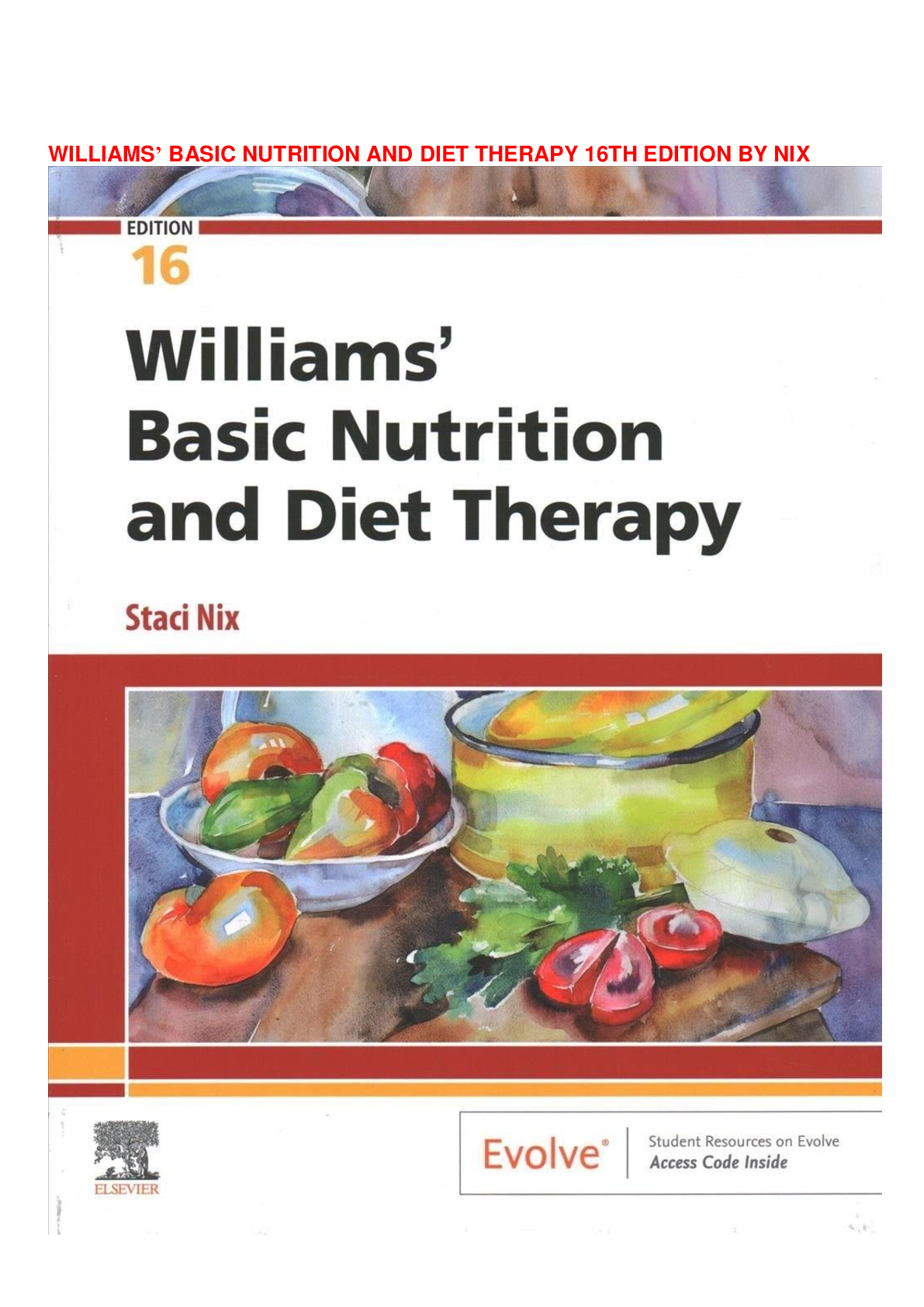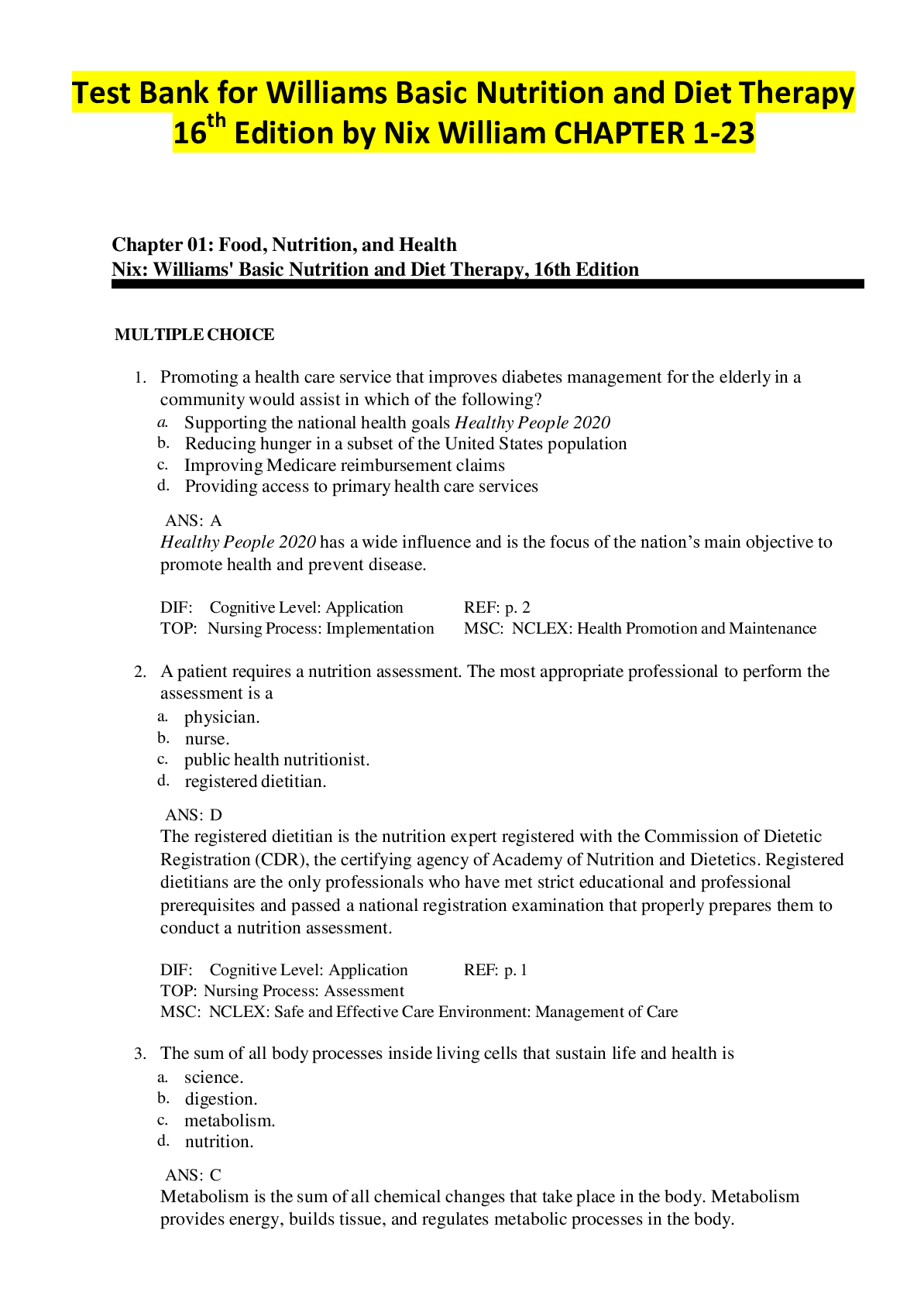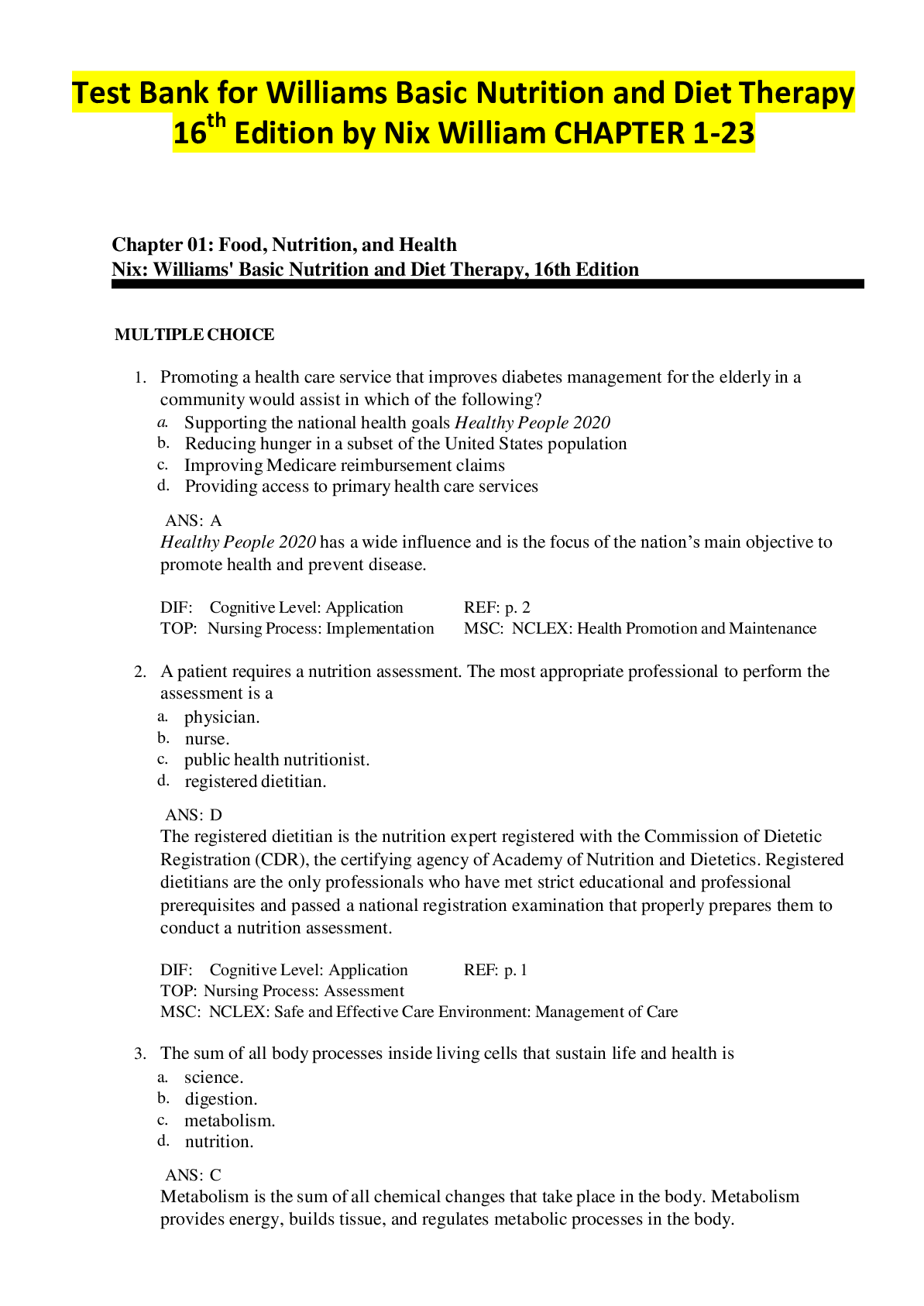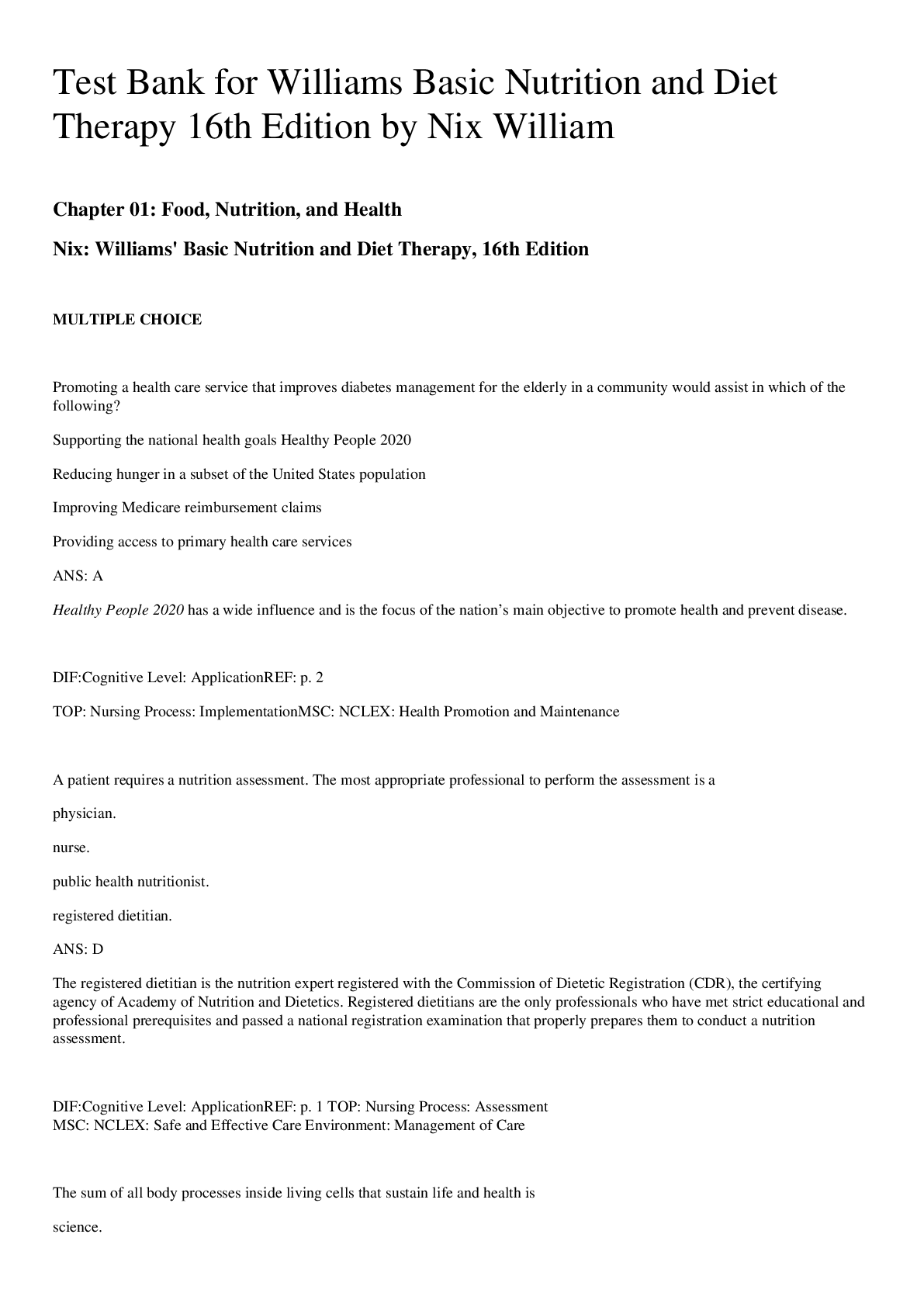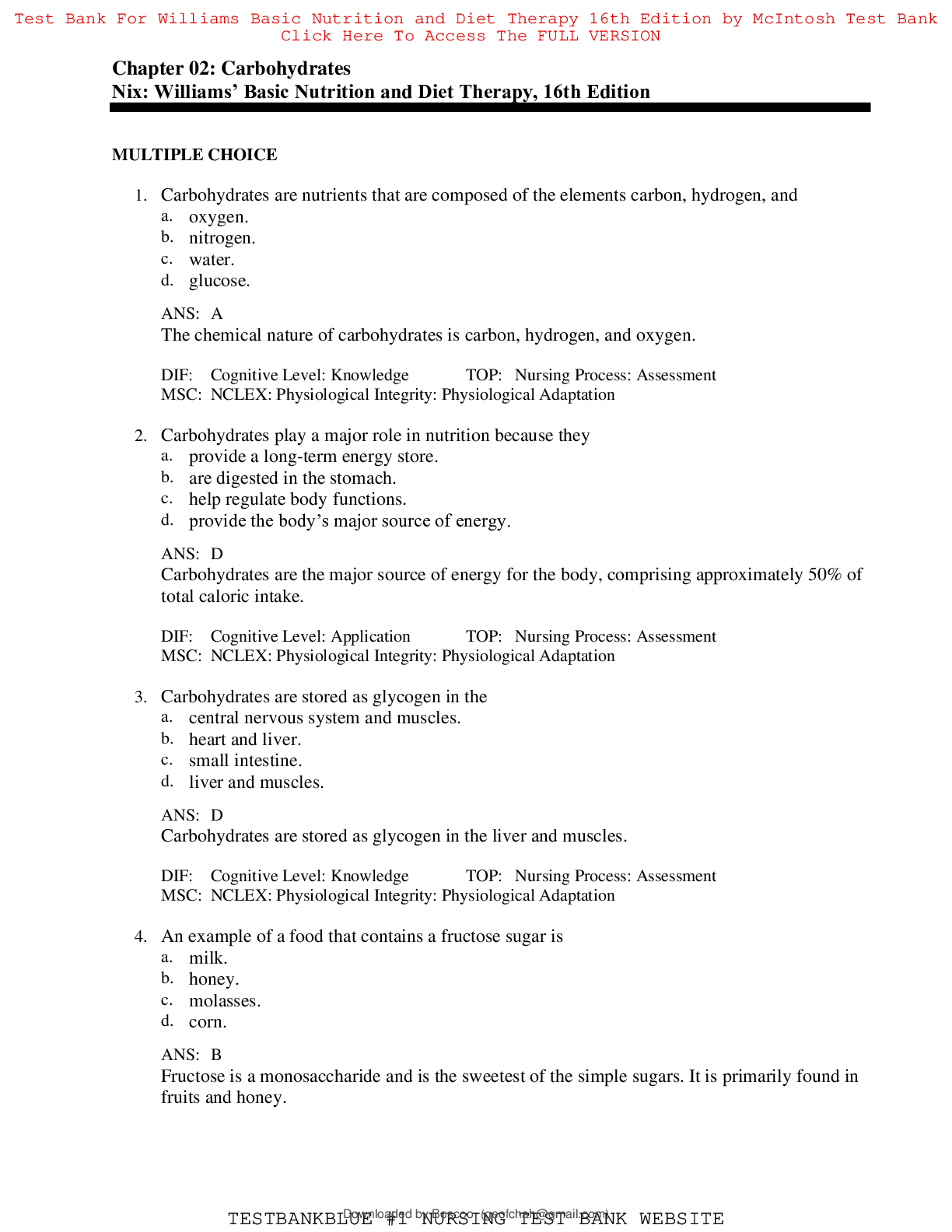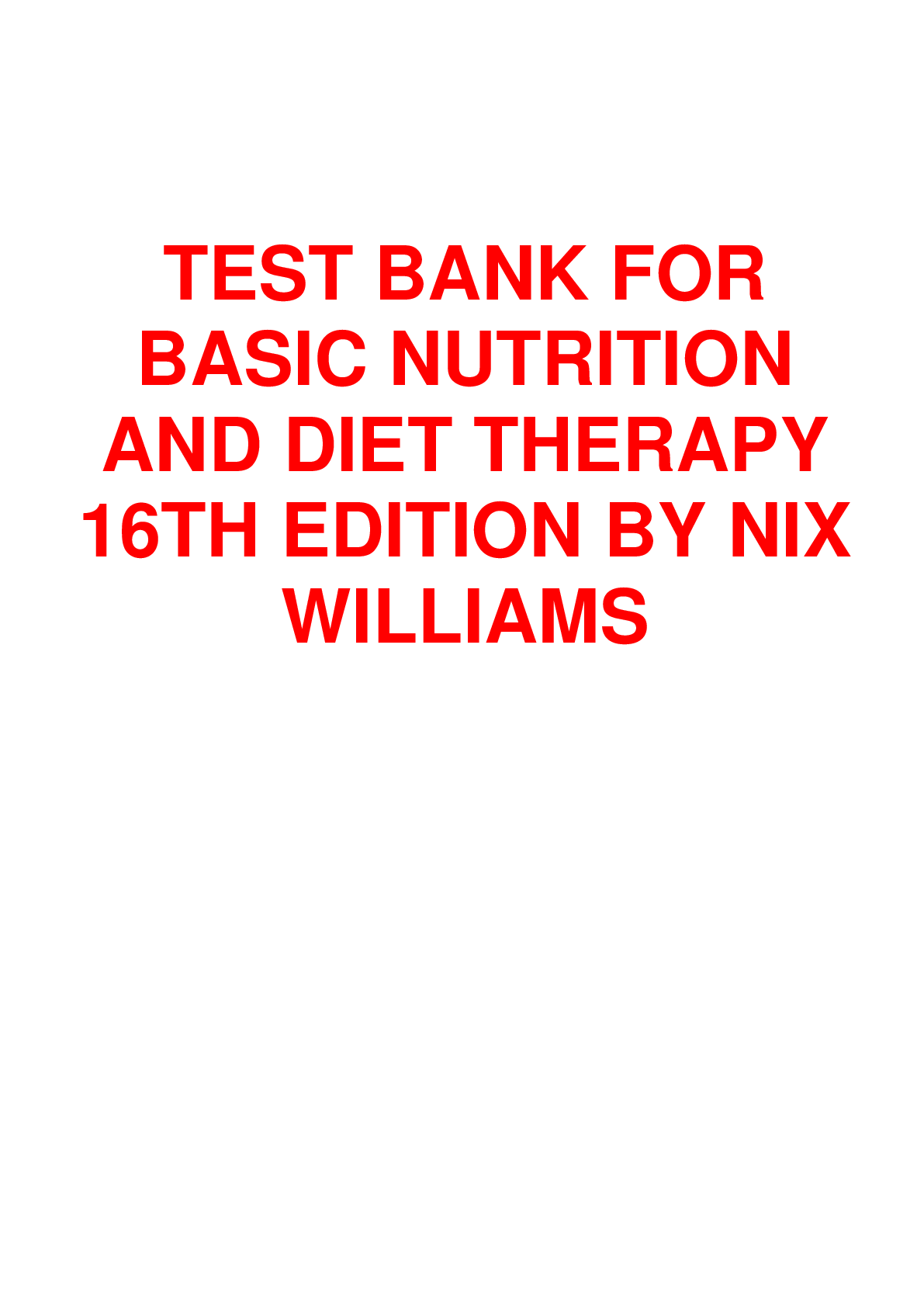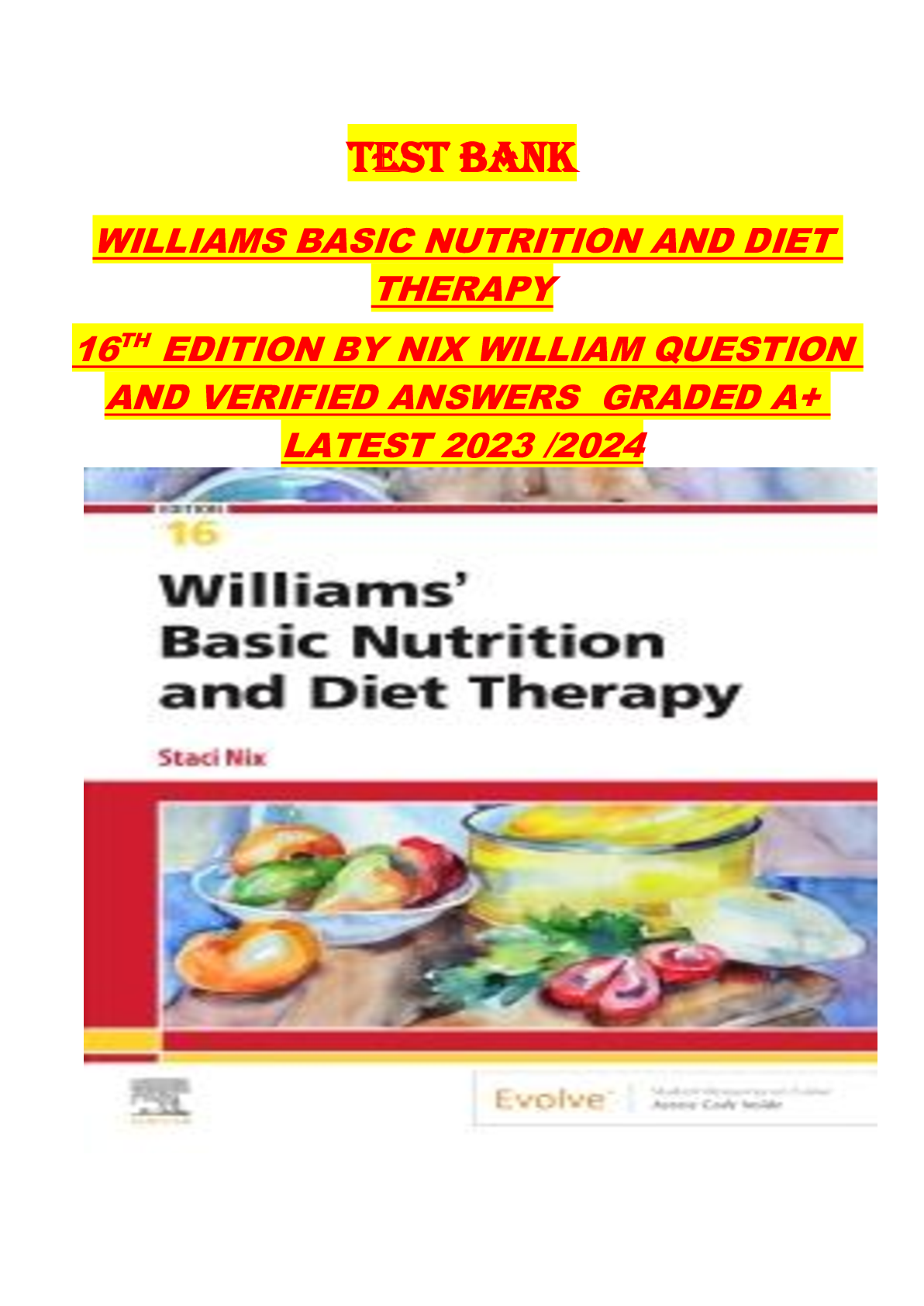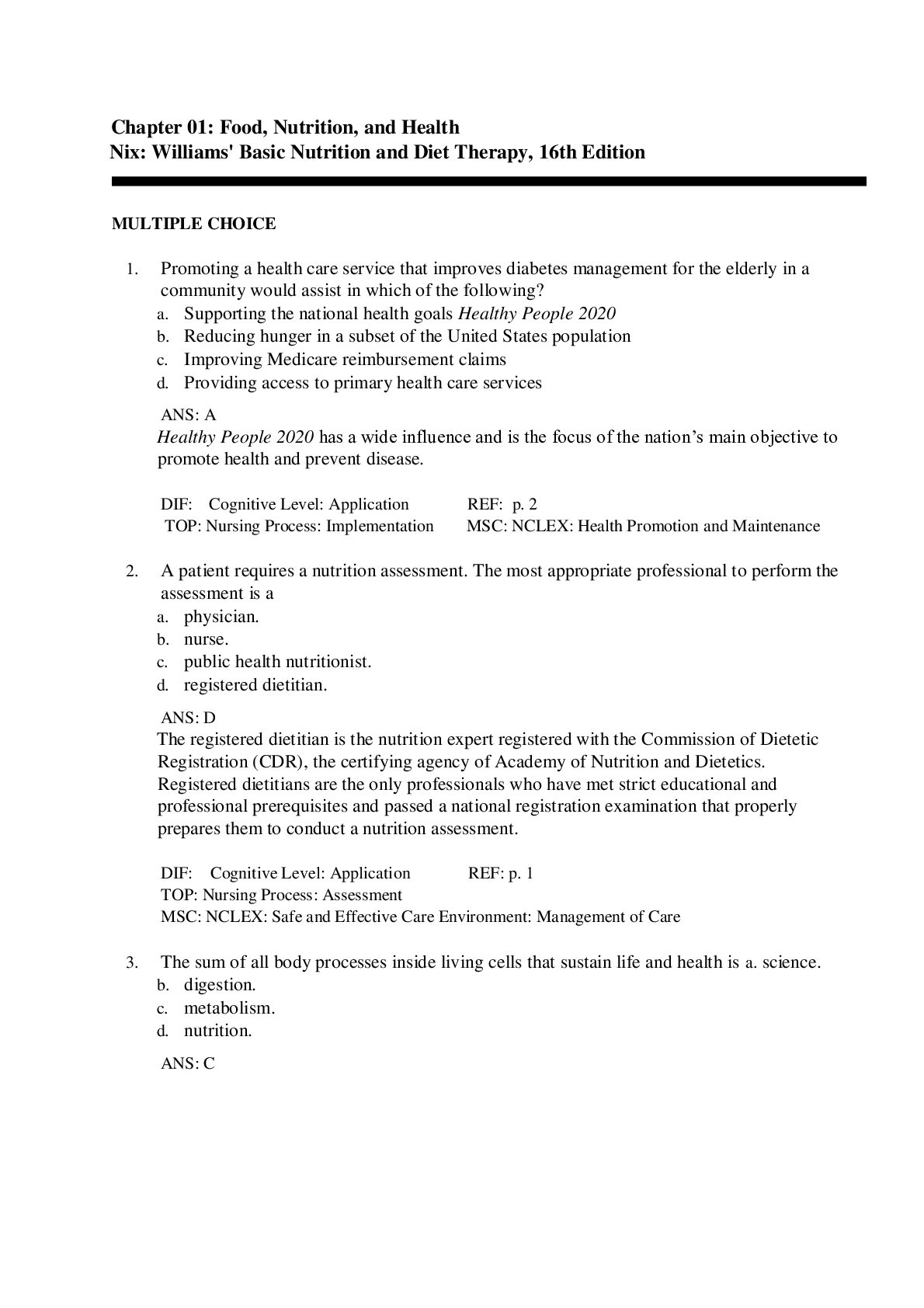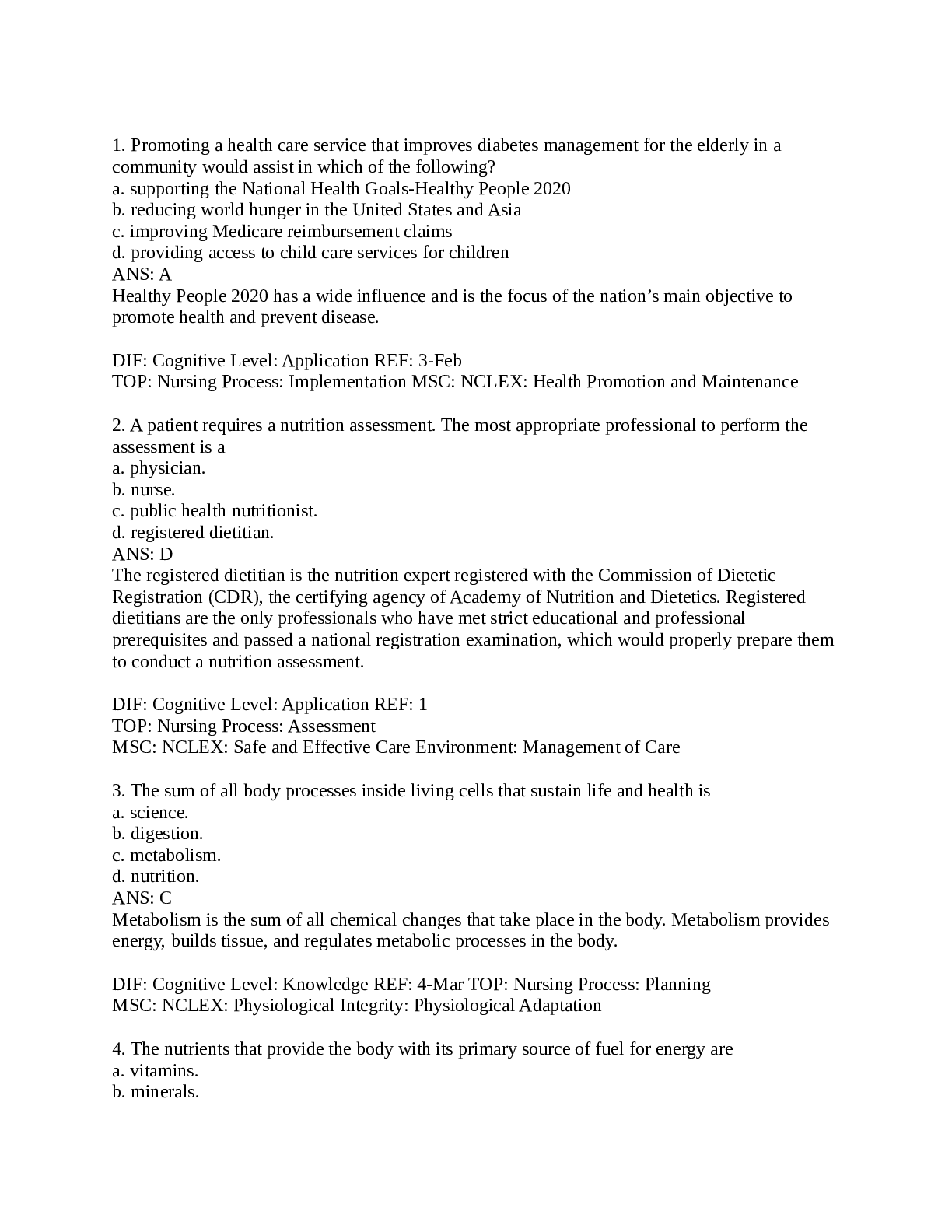Psychology > EXAM > Brooklyn College | Nutrition Exam 3 | Williams' Basic Nutrition and Diet Therapy, 15th Edition 2021 (All)
Brooklyn College | Nutrition Exam 3 | Williams' Basic Nutrition and Diet Therapy, 15th Edition 2021
Document Content and Description Below
Brooklyn College | Nutrition Exam 3 | Williams' Basic Nutrition and Diet Therapy, 15th Edition 2021-1. The hormone that conserves body water is a. the vitamin D hormone. b. the antidiuretic hormone.... c. aldosterone. d. the parathyroid hormone. ANS: B The antidiuretic hormone works on the kidneys’ nephrons to induce reabsorption and conservation of water. DIF: Cognitive Level: Knowledge REF: p. 143 TOP: Nursing Process: Planning MSC: NCLEX: Physiological Integrity: Physiological Adaptation 2. The two minerals that occur in the extracellular fluid and regulate water balance are a. calcium and potassium. b. sodium and chloride. c. phosphorus and magnesium. d. potassium and magnesium. ANS: B Sodium and chloride are the two minerals that occur in the extracellular fluid and regulate water balance. DIF: Cognitive Level: Knowledge REF: pp. 135-136 TOP: Nursing Process: Planning MSC: NCLEX: Physiological Integrity: Physiological Adaptation 3. A person is most likely to have a high body water content if he or she is a. overweight. b. underweight. c. a bodybuilder. d. sedentary. ANS: C An athlete would have a high body water content related to the amount of muscle mass. Muscle mass contains a relatively large amount of water. DIF: Cognitive Level: Application REF: pp. 134-135 TOP: Nursing Process: Assessment MSC: NCLEX: Physiological Integrity: Physiological Adaptation | NCLEX: Physiological Integrity: Reduction of Risk Potential 4. The term extracellular fluid includes a. plasma and tissue secretions. b. plasma and fluid inside cells. c. fluid surrounding cells and in beverages. d. fluid surrounding cells and fluid inside cells. ANS: A Extracellular fluid is the total body water outside the cells, including plasma and tissue secretions. DIF: Cognitive Level: Knowledge REF: p. 137 TOP: Nursing Process: Planning MSC: NCLEX: Physiological Integrity: Physiological Adaptation 5. A basic mechanism for maintaining body hydration is a. thirst. b. electrolyte balance. c. acid-base balance. d. activity level. ANS: A Thirst is the basic mechanism for maintaining hydration. DIF: Cognitive Level: Knowledge REF: p. 136 TOP: Nursing Process: Planning MSC: NCLEX: Physiological Integrity: Physiological Adaptation 6. The hormone responsible for promoting conservation of sodium in the kidney is a. aldosterone. b. the antidiuretic hormone. c. angiotensin. d. renin. ANS: A Aldosterone is produced by the adrenal glands, which trigger the kidneys’ nephrons to reabsorb sodium. DIF: Cognitive Level: Knowledge REF: p. 143 TOP: Nursing Process: Planning MSC: NCLEX: Physiological Integrity: Physiological Adaptation 7. Mr. J. consumes approximately 1500 mL/day from fluid contained in liquids and foods and from the metabolism of foods. What percent of his fluid requirement does he meet if he requires 2400 mL/day? a. 41% b. 51% c. 62% d. 84% ANS: C The intake from liquids, liquids in foods, and metabolism is approximately 1500 mL/day, so 1500 mL ÷ 2400 mL = 62%. DIF: Cognitive Level: Analysis REF: p. 134 TOP: Nursing Process: Evaluation MSC: NCLEX: Physiological Integrity: Physiological Adaptation | NCLEX: Physiological Integrity: Reduction of Risk Potential 8. Water formed from metabolism comes from a. that which is contained in foods. b. moving from compartment to compartment. c. what is absorbed from gastrointestinal secretions. d. the oxidation of nutrients in the cells. ANS: D Metabolic water, or water of oxidation, is the product of cell oxidation when nutrients are burned in the body for energy. DIF: Cognitive Level: Comprehension REF: p. 138 TOP: Nursing Process: Planning MSC: NCLEX: Physiological Integrity: Physiological Adaptation 9. The approximate volume of digestive secretions produced by the stomach each day is a. 1000 mL. b. 1500 mL. c. 2000 mL. d. 2500 mL. ANS: D The approximate total volume of digestive secretions produced by an average-sized adult is 8200 mL per 24 hours. Of this amount, 2500 mL is from gastric secretions. DIF: Cognitive Level: Knowledge REF: p. 142 TOP: Nursing Process: Planning MSC: NCLEX: Physiological Integrity: Physiological Adaptation 10. The kidneys must excrete water in the urine because a. the body needs to get rid of the ingested water. b. water provides the vehicle for excretion of waste products. c. they physiologically cannot retain all the water. d. hormones ensure that a maximal amount of water is retained by the body. ANS: B The largest amount of water exits through the kidneys. A certain amount of water must be excreted as urine to carry the various waste products of metabolism. This is called obligatory water loss because it is compulsory for survival and must occur daily for health. DIF: Cognitive Level: Knowledge REF: p. 143 TOP: Nursing Process: Planning MSC: NCLEX: Physiological Integrity: Physiological Adaptation 11. Plasma proteins and electrolytes are examples of solutes a. filtered from the plasma by the kidneys. b. found in body fluids that influence the movement of water. c. released into the plasma by the liver. d. recycled by the mucosa during digestion. [Show More]
Last updated: 1 year ago
Preview 1 out of 36 pages
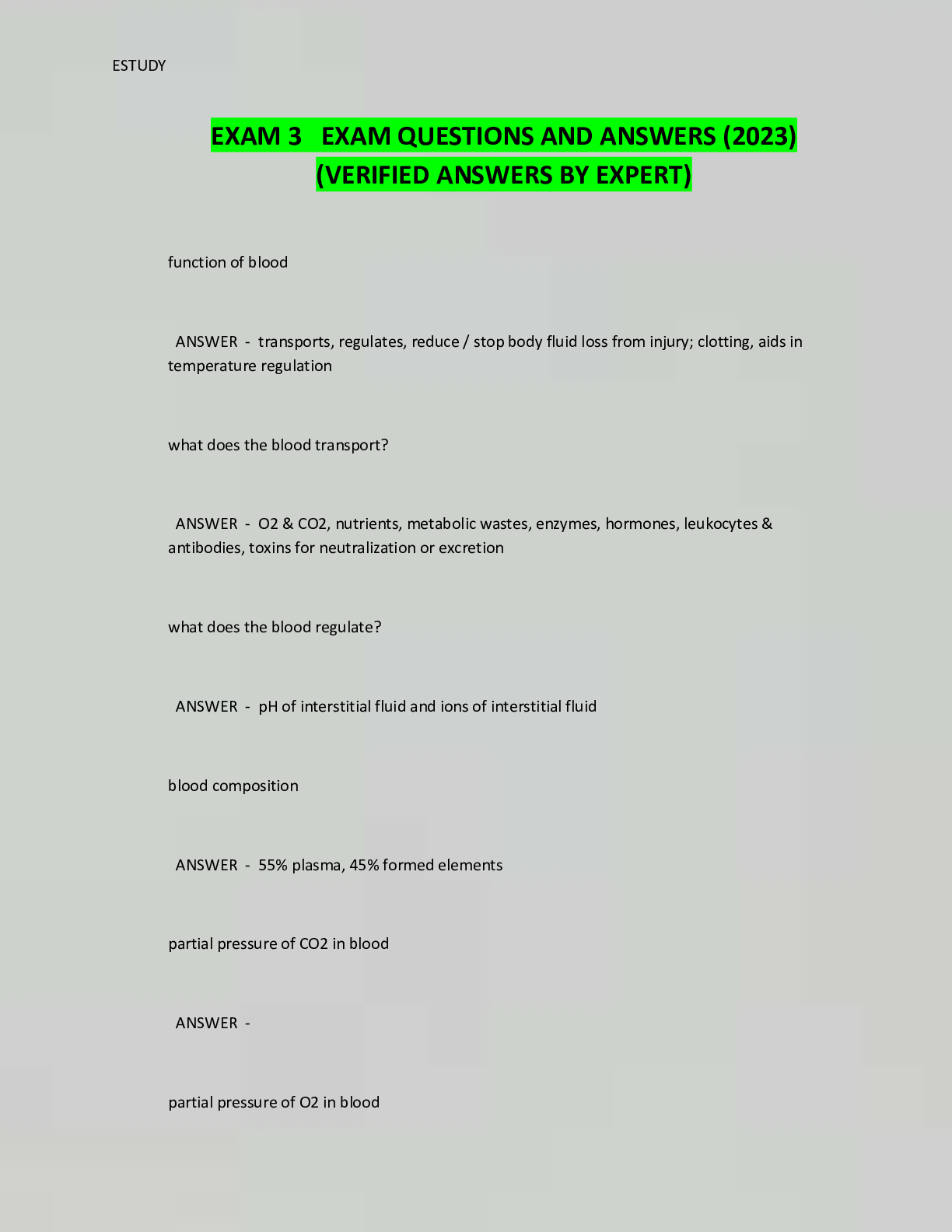
Reviews( 0 )
Document information
Connected school, study & course
About the document
Uploaded On
Jul 26, 2021
Number of pages
36
Written in
Additional information
This document has been written for:
Uploaded
Jul 26, 2021
Downloads
0
Views
18

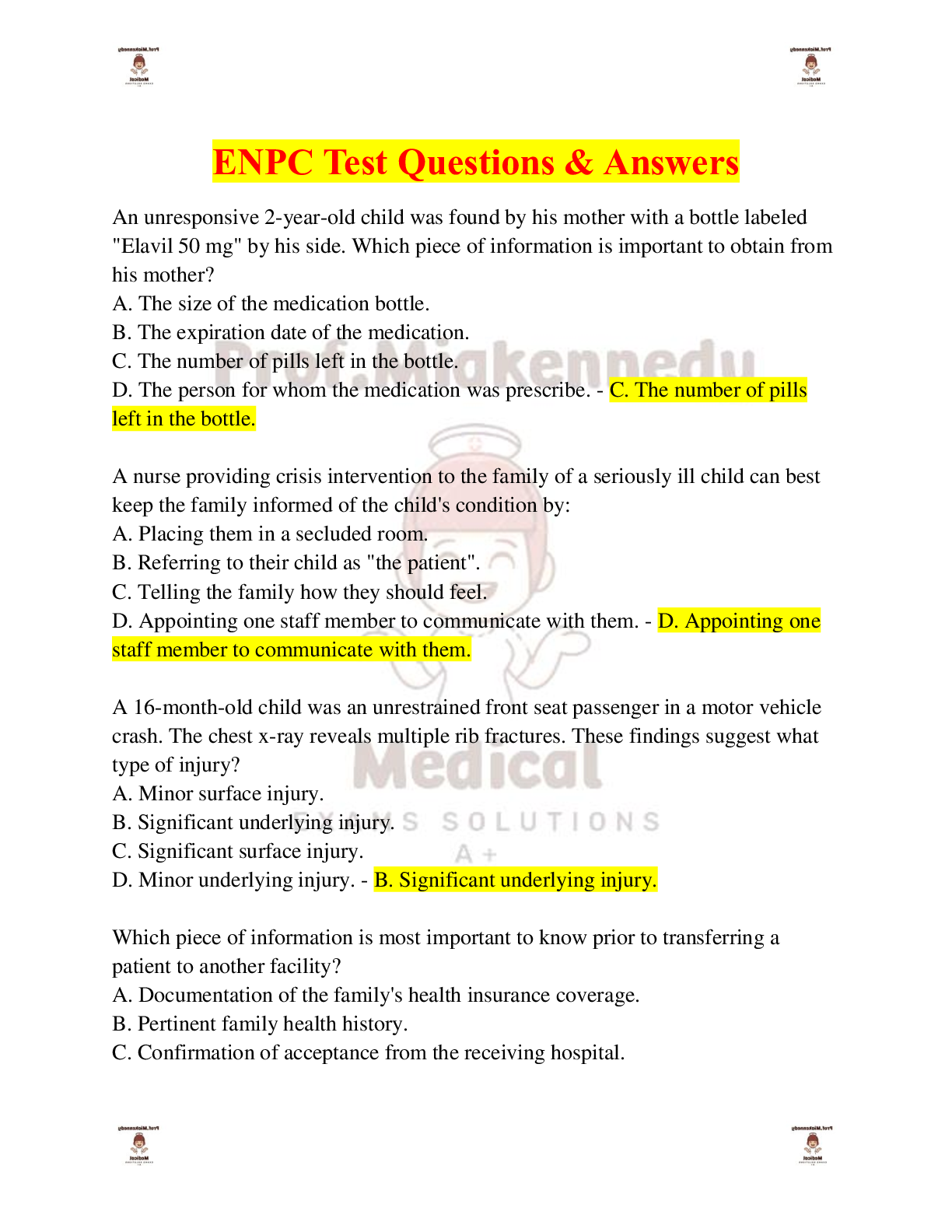
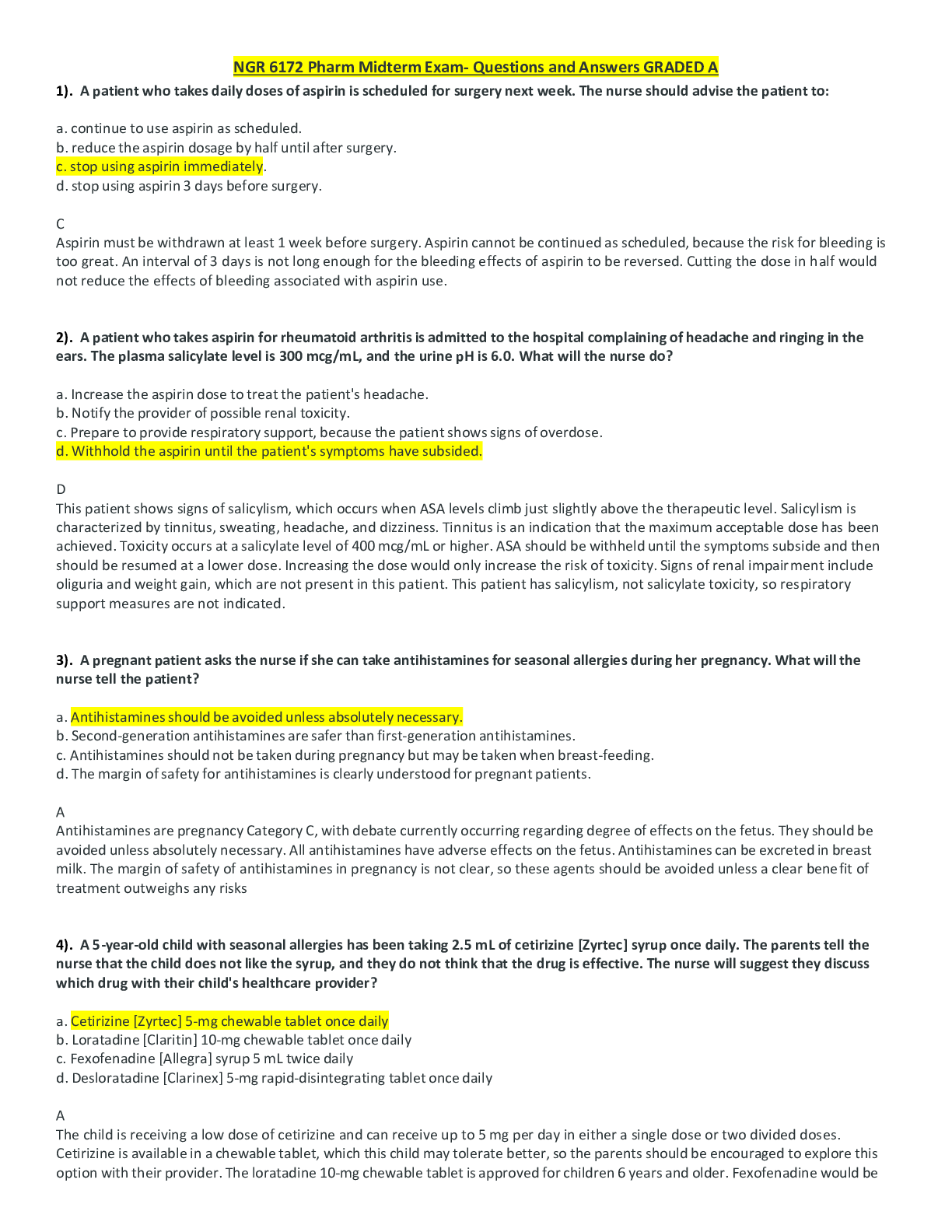
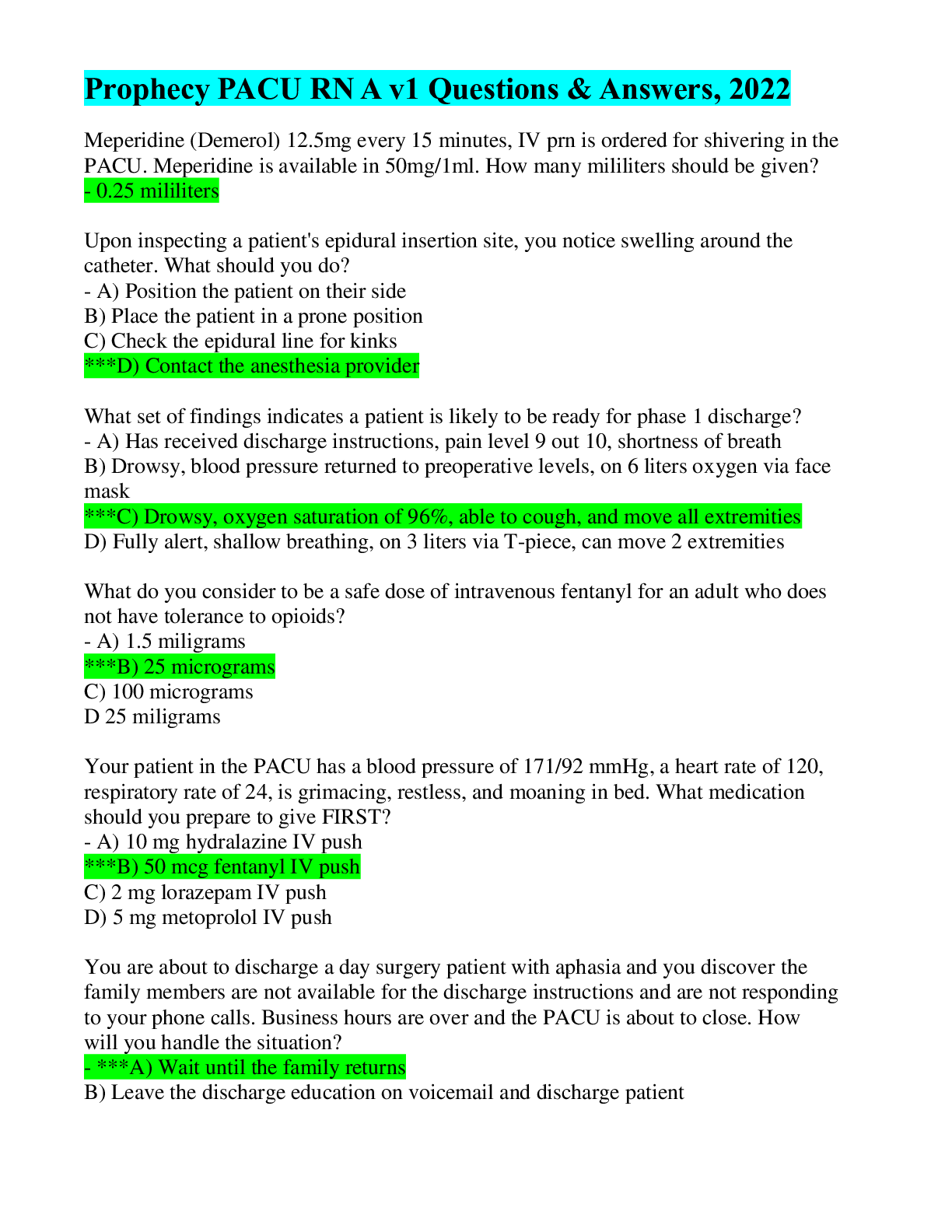
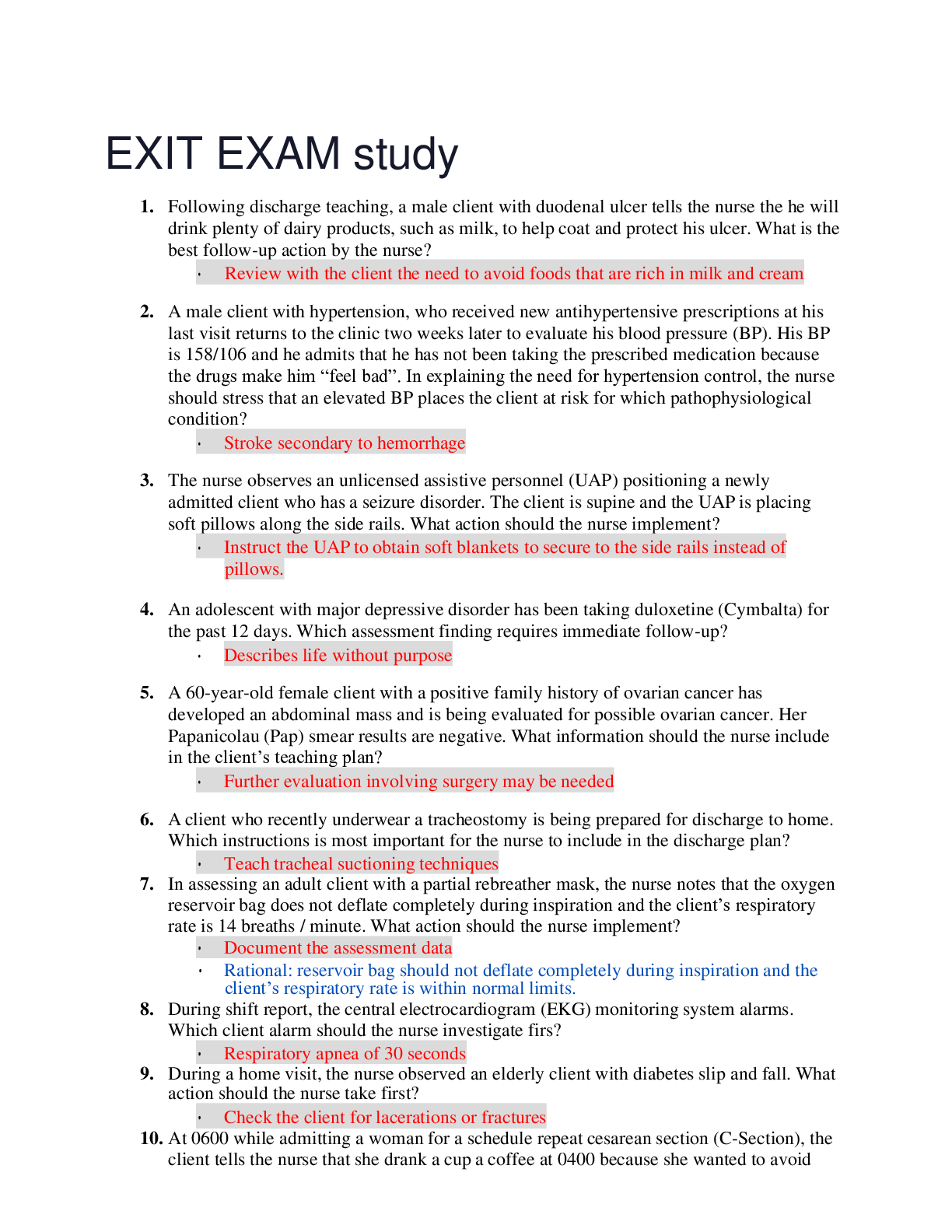
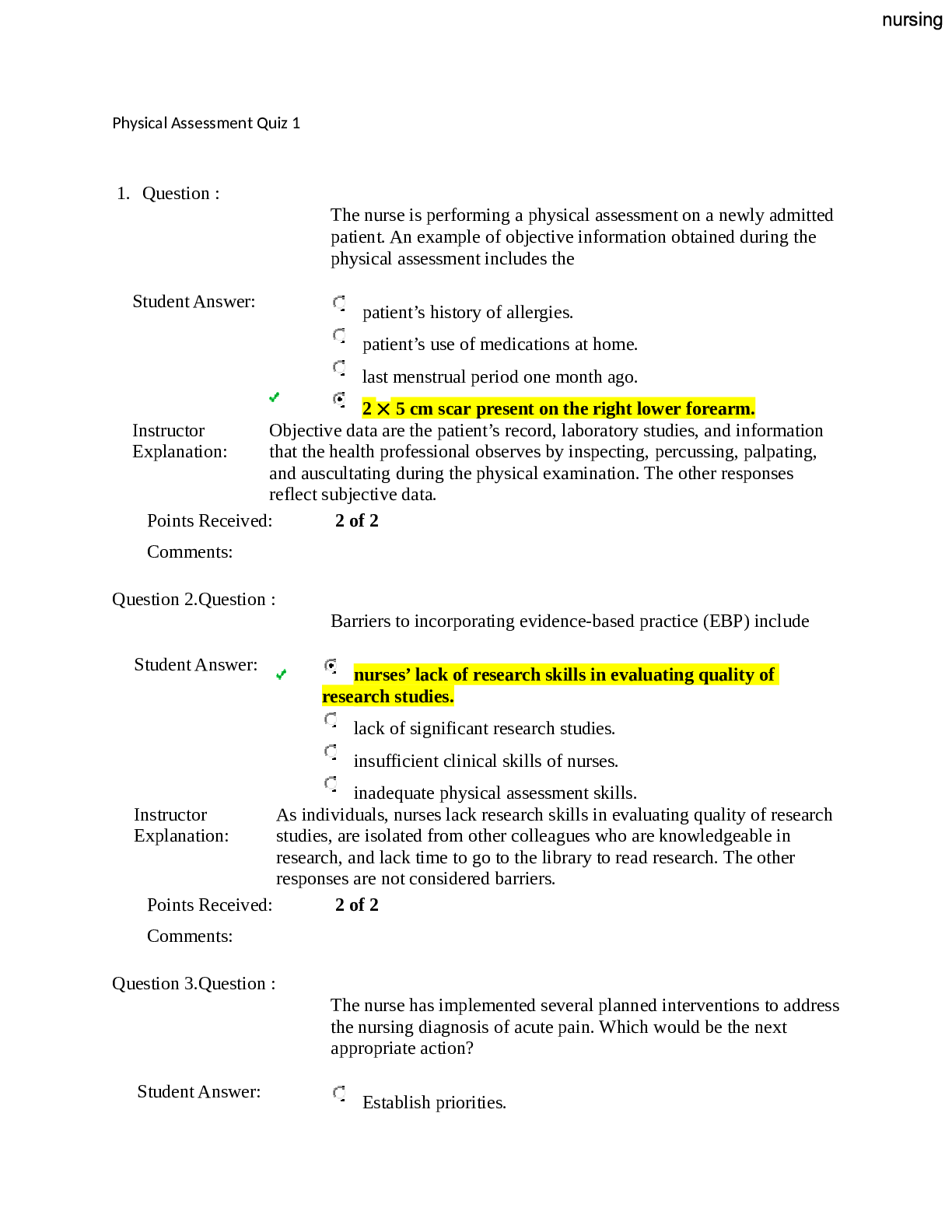
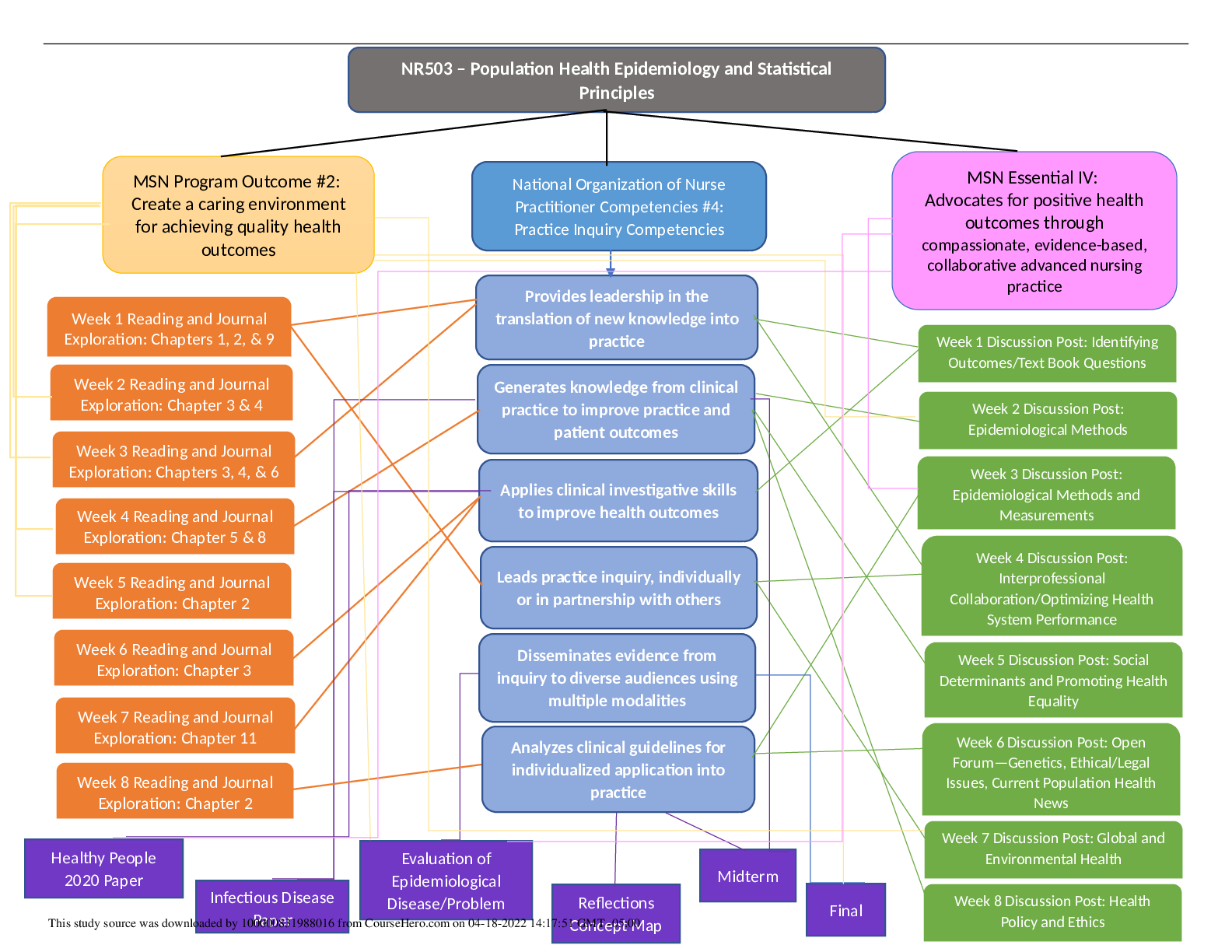

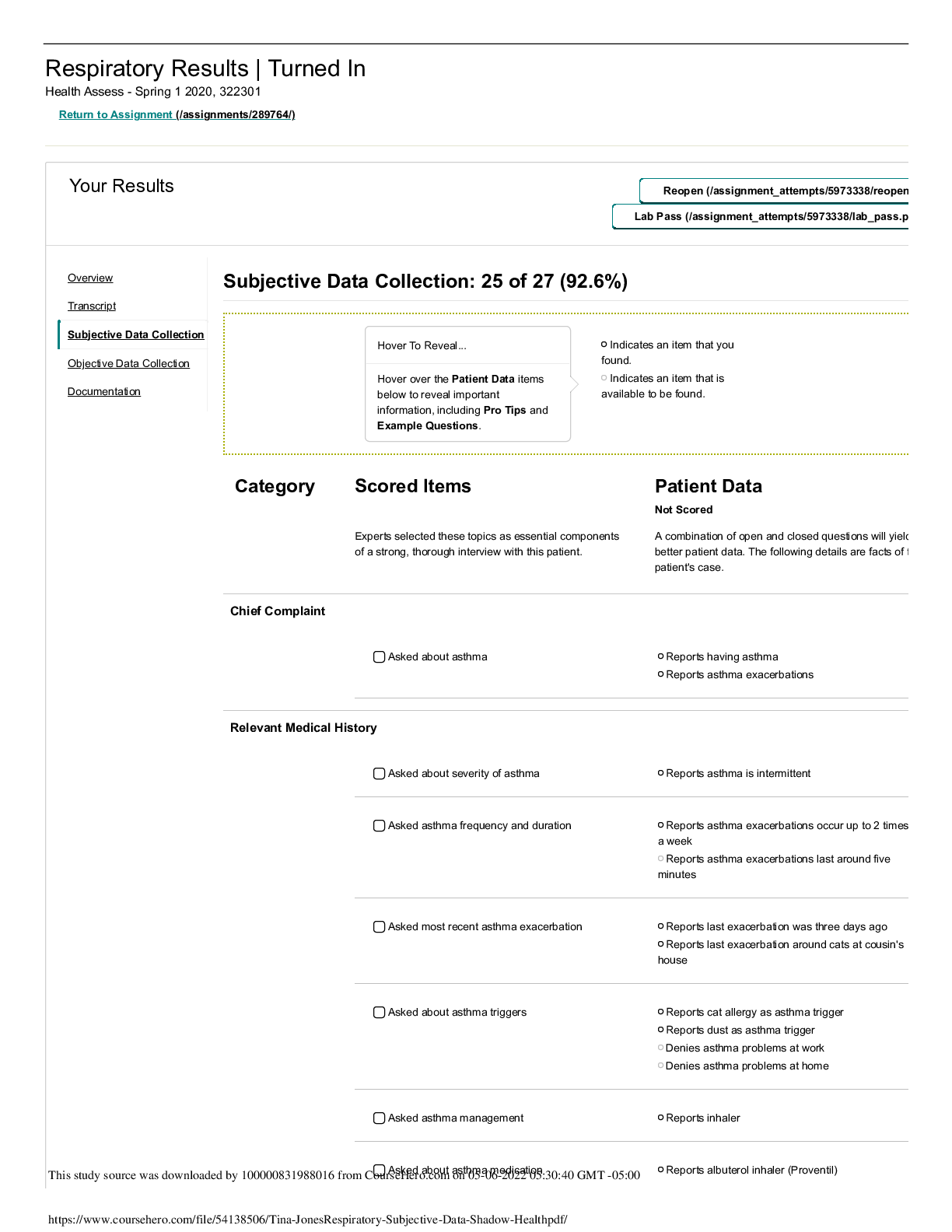
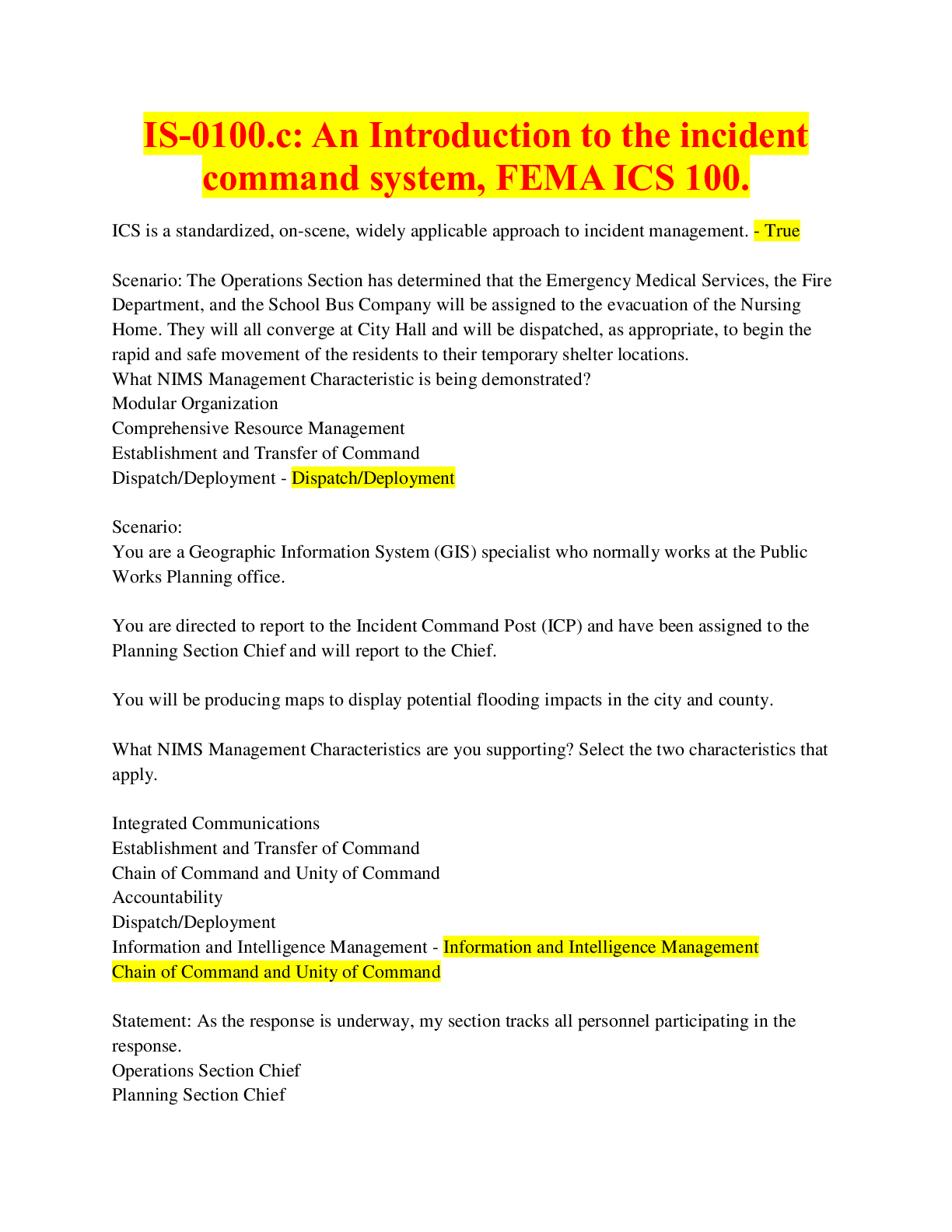

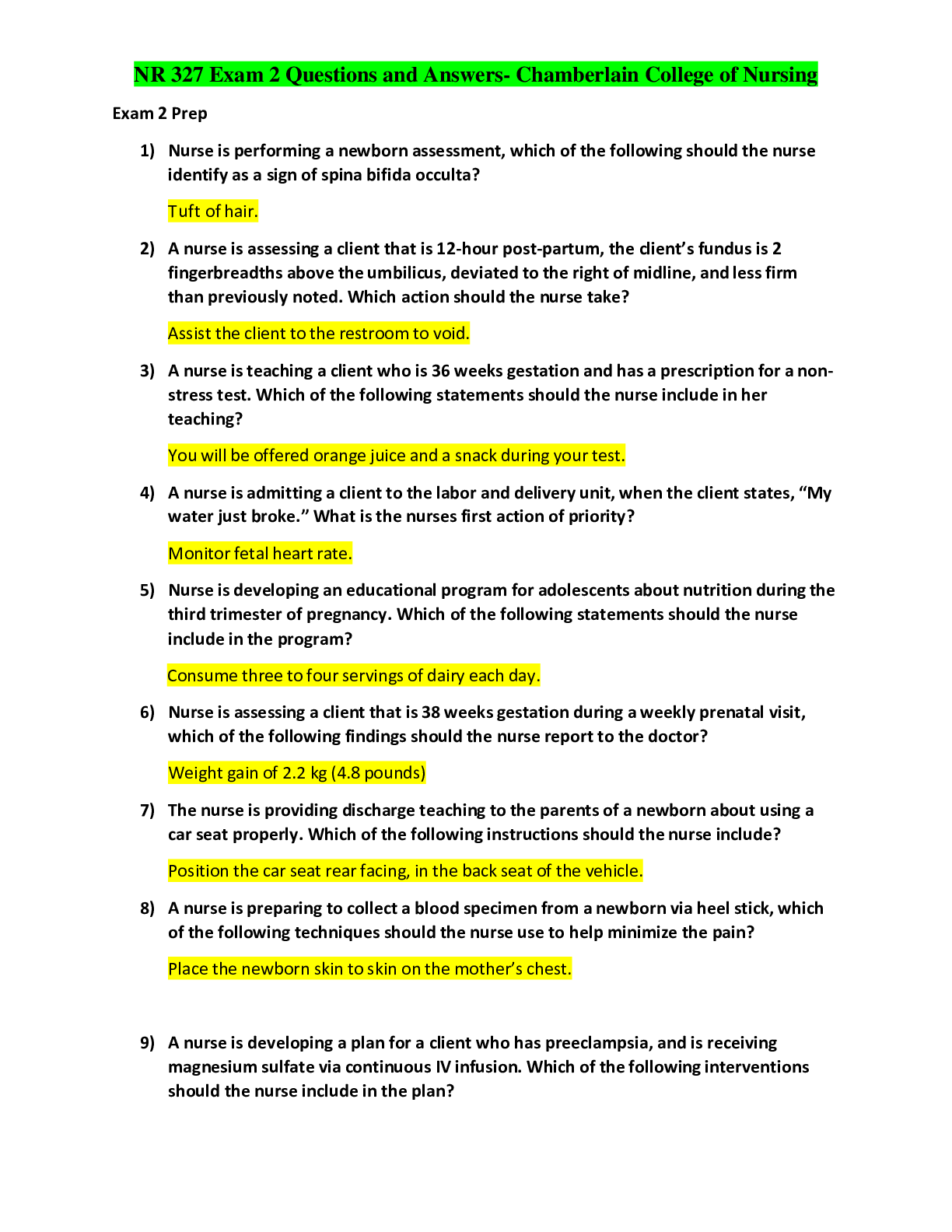

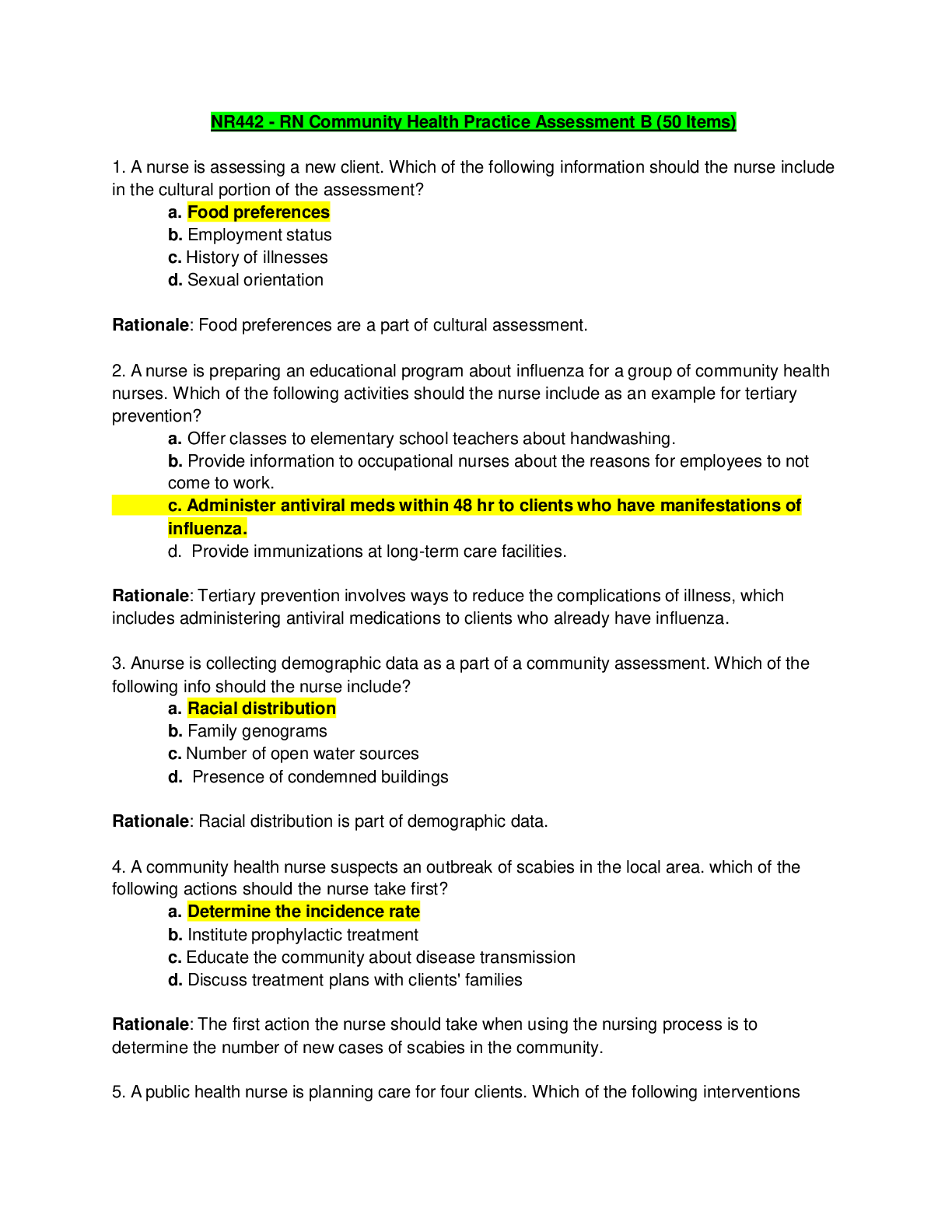
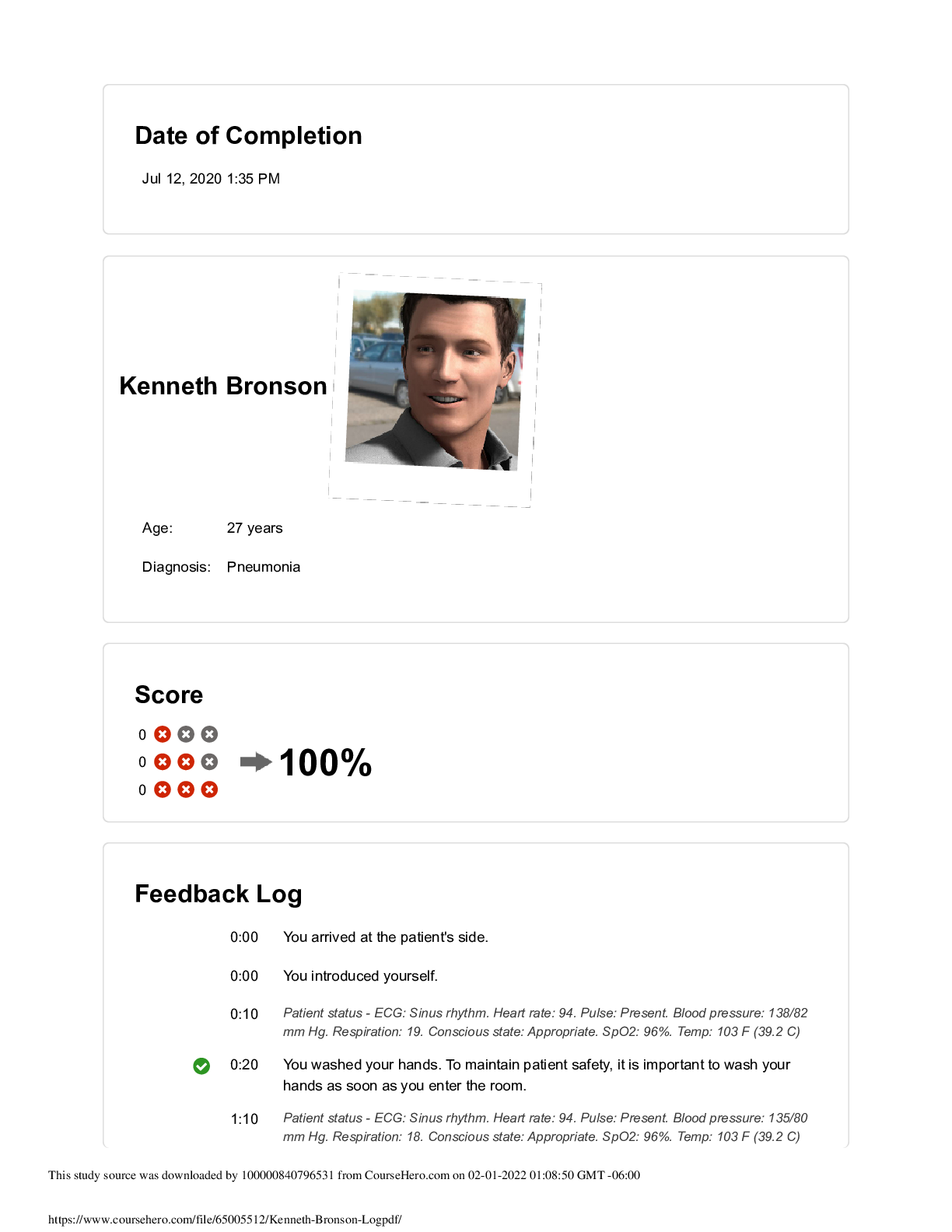

.png)
